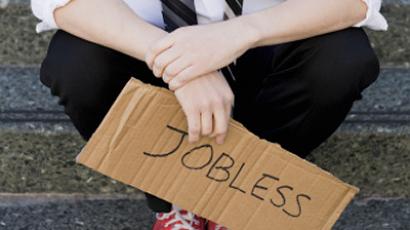Struggling US town looks to China for help

Millinocket, Maine was once the symbol of a successful mill town, but due to international competition the once booming town slowly started to spiral downwards. The mill went bankrupt and much of the town's population moved away.
"International trade is what basically took the paper industry in the United States down. It's not just here in the town of Millinocket, it's worldwide…The Chinese, they're more clever than we are and when we do a deal with them, we get the sour end of it," said Douglas Rush, a former mill worker.Today the town has many abandoned store fronts and 60 percent of the high school students in town qualify for a free lunch because their parents’ income is at or below the poverty level. The high school superintendent decided that in order to save his struggling town, he would recruit Chinese students into the schools, and charge them $27,000 to attend high school for a year."They have some skills that we don't have that we'd love to instill in some of our students: this desire to learn and getting ahead by getting a good education," said Dr. Kenneth Smith, the school superintendent.It's a controversial idea, especially in a town where most view China as the reason their mill went bankrupt. But Smith argued that the competition that might have hurt the town's past, can also help to reshape its future."We can't possibly compete with their labor market and they've got 1.4 billion people…I think the competition is good for us and we have to learn and adjust. That's the way the economy works," said Dr. Smith.But not everyone in this almost exclusively white town is excited about the idea that their school might eventually have just as many Chinese students, as students from Maine."Some people will have an issue with it. They're going to be like 'oh my gosh, they're not from here, make them go away'," one student said.Most of the students at the high school have never traveled abroad. They say what they know about China, they've seen on TV."I think the Chinese are going to be in total shock. I think of them as like ten times more advanced than us like more money, a better society and then you look at us and we're poor and have nothing," another student said.Those struggling to survive in town are angry that the country they blame for bringing down the mill is now the same one they're looking to for help."They should have kept people working here…all the jobs have been shipping overseas," said Jimmy Martin, a former mill worker who spent almost four decades at Millinocket's mill and saw it crumble before his eyes.Dr. Smith argued Millinocket has no choice but to join the globalized economy, and the Chinese may just be their way to get there."We need to learn the things from them that they do well and they can learn from us the things we do well," he said.Meanwhile, Meredith Whitney, the US research analyst accredited with predicting the global credit crunch, warmed that the $2 trillion US debt crisis could bring down 100 American cities and is now the biggest problem facing the US economy. Hundreds of cities across the country in similar circumstances as Millinocket face the possibility of defaulting on their municipal bonds, bonds which pay for public services. If the cities default, those services may fold as well due to a sever lack of municipal tax income. Conservative talk show host Tony Katz said he does not doubt the possibility, explaining that cities have continued to overspend and it is now catching up with them.“This is what happens when you spend more than what you have,” he said. “The cities have to get themselves under control.” China cannot save American towns, he argued. America is a better nation than China and does not need to rely on the Chinese. City populations’ change and workloads change. The people must adapt, this is the reality Katz argued. Cities need to cut back possible on the number of police, fire, and social services. The can cut the salaries for elected city officials, the solutions will be different for each city, he explained. But the answer is not to increases taxes, the answer is to spend less. “Excess taxation leads to less revenue for governments,” he said. “Lower taxes allow for people to keep more of their money, spend more of their money and push more of their money into the economy. It’s better for everybody.”














